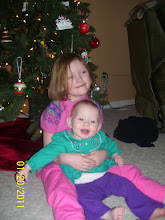When I arrived, she asked me to come into her room. Little did I know that I would get to witness my first grand baby be born. Kayla was not dilating the way they wanted her to so she ended up getting a spinal and putosin, it wore off in time for her to push. She delivered a healthy girl named Gracie who is now five years old.
Child Birth In India
These are some of the shocking findings of UNICEF's `State of the World's Children 2009' report released on Thursday.
· According to the report, an Indian woman is 300 times more likely to die in childbirth or from pregnancy-related complications than women in America or England. For every mother who dies, 20 others suffer pregnancy-related illness. Around 10 million women annually experience such adverse outcomes.
· Despite an increase in institutional deliveries, 60% of pregnant women still deliver their babies at home.
· In India, more than two-thirds of all maternal deaths occur in a handful of states -- UP, Uttarakhand, Bihar, Jharkhand, Orissa, MP, Chhattisgarh, Rajasthan and Assam.
· In UP, one in every 42 women faces risk of maternal death, compared to 1 in 500 women in Kerala.
· As far as neonatal deaths (within the first 28 days of life ) are concerned, the worst-off states include Orissa (52 deaths per 1,000 live births), MP (51), UP (46), Rajasthan (45), and Chhattisgarh (43).
· The report points out that babies whose mothers die during the first six weeks of their lives are more likely to die in the first two years of life. "For every 100 children born in the world, 20 are from India. For every 100 children who die globally, 22 die in India," UNICEF India chief Karin Hulshof said.
· According to her, the health and survival of mothers and their newborns are intrinsically linked. "Many of the same interventions that save maternal lives also benefit their infants. Even though India has cut its under-five mortality rate from 117 per 1,000 live births to 72 between 1990 and 2007, neonatal deaths contribute to 50% of these under-five deaths," Karin added.
· According to the report, three-quarters of all maternal deaths in India occur from complications either during delivery or in the immediate post-partum period.
· A quarter of the world's unattended deliveries take place in India, which is one of 10 countries which together account for two-thirds of births not attended by skilled health workers.
· The report also points to India's shameful statistics regarding breastfeeding. Experts say universalisation of early breastfeeding, within one hour of birth, would reduce neonatal mortality in India by 22% while universalisation of exclusive breastfeeding for the first six months of life would avert nearly 16% of young child deaths.
· However, the report says only one in four children are breastfed within one hour of birth.
· Annually, around 6 million children born in India have low birth weigh

Wow !!! Your information about India is so devastating and shocking! I had no idea at all!
ReplyDeleteThat blows my mind. What a huge risk it is to have a child over there. I think about how many risk there are in every pregnancy but then to think about the risk involved for women in India is amazing! I am so glad that number of under five mortalities has dropped from 117 to 72! That is still a large number though. Thanks for sharing this shocking information.
Thank you also for the service you have provided as a mother for your daughter! I am so glad you were able to witness the birth of your grand daughter! What an exciting time! Happy Mother's Day!
Amy
Your birthing experience was similar to mine in that I feel that I received substandard, unenthusiastic care from the hospital staff because I was a low income patient (my husband and I were both in college at the time). I was also rushed out as soon as possible in spite of a c-section because the birth was covered by Medicaid. I felt that the hospital staff was reluctant to perform any procedures that would be costly because their payment would be minimal. I am certain that our experiences are two of many.
ReplyDeleteThe facts about India are scary, It makes me thankful to know that here were we live and the hospitals and doctors that we have are educated and seem to know what they are doing!!! The idea of pregnancy and delivery can be scary in itself I could not imagine living in India. I am glad that your daughter had a better experience than you did during your labor and delivery. When my mother was pregnant with me, and delivering she had some complications and I have always worried that when my time came to have children, I could possibly have to deal with the same situations. I think the labor and delivery is the most nerve racking part of having a baby because so many things could go wrong.
ReplyDeleteChris,
ReplyDeleteI was very fortunate to have a loving family and husband that supported both of my pregnancies, I now have two beautiful adult daughters. We are still much more fortunate in America and are lucky to have such health care plans. I don’t know why I was so surprised of your research findings. The friend I talked with never told of the high mortality rates and lack of health care. I’m going back to talk with her tomorrow and see how she replies to the information. I would like to know if it’s due to different socioeconomics or regions.
Kristi